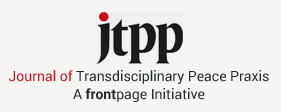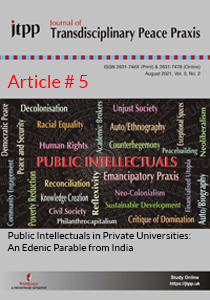Description
Public Intellectuals in Private Universities: An Edenic Parable from India
Nandini Dhar (Associate Professor of Literature and Gender Studies at the OP Jindal Global University (JGU), Haryana, India)
On 16 March 2021, Pratap Bhanu Mehta, a leading contemporary political theorist in India, who has also been consistently critical of the current regime’s politics, resigned from his position as a professor at Ashoka University. Mehta, a couple of years earlier, had also resigned from his position as the Vice-Chancellor of the university, but had continued to teach even after his resignation.
Although, not clearly articulated, Mehta’s resignation letter hinted towards the fact that his public writings, critical in spirit about the current regime, had inspired the ire of the university donors. Economist Arvind Subramanian, who was also a professor at the institution, resigned in solidarity, creating a widespread furore in the academic circles in India and abroad.
Taking its starting point from the Mehta episode, the essay reflects upon the phenomenon of the emergence of the ‘new’ private universities in India in the post-liberalisation period.
Through an analysis of an assortment of materials—university brochures, student testimonies and media reports—the essay shows, one of the central ideological projects of such private universities is predicated upon the creation of transnational Indian elites. This is a process that is achieved not only through instating an imagination of students as consumers, displacing the liberal imagination of the student as a citizen-in-training, but also through obfuscation of the questions of class, caste and capital’s hegemony.
The essay concludes that the very project of such private universities in India makes faculty like Mehta and the students complicit in such a project, and in the process, even their resistance comes across as limited and bounded by an inability to question their own class and caste privileges, and in their ideological faith in capital’s ability to deliver beneficial services to everyone.





